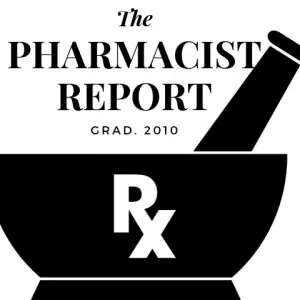Are you confused between radiology and pharmacy career options? If the answer is yes, this post will help you. Here we have compared both the career options so that you can choose the right one.
Choosing a career field can be quite a complex decision. There are a number of factors you need to take into account before selecting a particular career option. It’s not just about how much money you can make from that field but also about your interests.
In this post, we will talk about the job description, duties, responsibilities, average salary, etc., of radiologists and pharmacists.

Job description
Here’s the job description of radiologist and pharmacist career positions:
Radiologist
Radiologists are physicians who use medical imaging technology to diagnose and treat illness. As a radiologist, you will be responsible for interpreting the results of tests performed and then consult with a patient’s primary physician.
Radiologists don’t directly interact with patients. Their main job is to evaluate patients’ medical histories, perform diagnostic imaging procedures, and interpret test results.
The job skills required to become a radiologist are way more different from the job skills needed to become a pharmacist. It includes three main specialties – diagnostic, interventional, and radiation oncology. These three skills will make you a good radiologist.
Having a diagnostic specialty would help with the use of imaging technology to diagnose disease. The interventional skills will help with the treatment & diagnosis of diseases with imaging technology. And radiation oncology will help with the use of radiation to treat cancer.
Pharmacist
Pharmacists are healthcare professionals responsible for dispensing medications. Dispensing of medicine is the primary job of pharmacists. Pharmacists are responsible for many other jobs. The duties and responsibilities of pharmacists will vary depending on the type of pharmacy you choose.
Depending on your interest and expertise, you can choose from a retail pharmacy, ambulatory care pharmacy, hospital pharmacy, compounding pharmacy, consulting pharmacy, regulatory pharmacy, and more.
We have seen that radiologists don’t interact directly with patients. Talking about pharmacists, they have direct interaction with patients. Pharmacists prepare medications by reviewing and interpreting physician orders.
They also need to provide guidance on the usage of medications. Consulting patients regarding medications will ensure it is used properly.
Duties & Responsibilities
Depending on the career field you choose, the duties and responsibilities will differ. Although radiologists and pharmacists are both in the healthcare field, both have different duties and responsibilities. Having a clear idea about the duties & responsibilities will help you know whether to go with that career field or not.
Radiologist
- One of the main duties of radiologists is to evaluate the patient’s medical history to make sure tests will not cause harm.
- Another essential duty is to perform diagnostic imaging procedures.
- After the diagnostic test, radiologists make a diagnosis based on the results.
- Another important thing involved in the responsibilities of radiologists is consulting with colleagues. Radiologists need to communicate test results to the patient’s primary physician.
Pharmacist
- Preparing medications by reviewing and interpreting physician orders.
- We have seen that radiologists don’t directly communicate with patients. Talking about pharmacists, they are required to communicate with patients.
- Another critical duty of pharmacists is to ensure patients’ safety. They are required to check each patients’ medication record every time a new or refill prescription is filled.
- You also need to manage the staff working in the pharmacy. Pharmacists may have hiring decisions and developing workplace policies.
Skills Required
The skills required to become a radiologist and become a pharmacist are totally different. Here are they:
Radiologist
- Medical and technical skills
- Diagnostic skills
- Interventional
- Radiation oncology
Pharmacist
- Analyzing information
- Administering medication
- Verbal communication
- Pharmacology
- Managing processes
- Attention to detail
- Quality focus
Salary
You might be looking for a career field with a higher salary. Considering this factor is essential, but considering only this factor is not advisable.

Radiologist
One of the major reasons why many people consider this job position over a pharmacist job position is due to its attractive salary. Radiologists make more money than pharmacists.
The salary of a radiologist will vary depending on many factors. It includes education, skills, certifications, additional skills, and more. In the United States, the average salary of radiologists is about $413,390 a year. The salary can range between $359,390 and $478,290 a year.

Pharmacist
The salary as a pharmacist will vary based on the pharmacy type. For example, whether you are a retail pharmacist, ambulatory care pharmacist, consulting pharmacist, hospital pharmacist, or any other.
If you want to select the pharmacy type that can make you the highest money, consider getting into the retail pharmacy. Retail pharmacists make on an average $126,310 a year. On average, the salary of pharmacists can range between $95,000 to $145,000 a year in the United States.
Pharmacist or Radiologist According to Professionals
So we didn’t want you to only take our word for it. So we scoured the internet to find opinions of those on this specific situation on what profession to choose. Most all these opinions are those of either current or past students who currently or have worked in one of these fields. This information was curated from different forums, websites and sub reddits. Nothing has been changed except any spelling or grammar where it was needed.
Real Opinions
1. Anon240896 “Do what you enjoy” – Hey, currently a pharmacy student coming to the end of my final year. DO WHAT YOU ENJOY!! is the best advice I can give. I feel like every sector has it’s bad points, so you might as well get into something you actually have a passion for, it will make those bad points worth it and stop you from becoming discouraged later in life. Whether you find it enjoyable or boring will depend on your actual passion for the subject and your job role. Is it repetitive? Probably in community, hospital/clinical pharmacist will probably see more of a variety. Do some placements in different sectors (GP’s or hospital), see if you enjoy it?
Many people get into pharmacy assuming its a job that pays well or its chilled out as you’re just a “glorified shopkeeper”. Fact is, pharmacy is changing and is demanding more. With it becoming so saturated and NHS cuts, you will be expected to do more, for less money. Locum pay rates have gone down as well the general pharmacist salary. Hours and shifts are longer, with an increased work load. I’ve heard hospital pre-reg salary are also being cut down by 25% from 2020! Because of this, many people will tell you don’t bother with it, and you’re better off doing something like optometry or whatever. If you’re in it for the money, then yeah, don’t bother. There are far less stressful jobs that will probably earn you a similar or close enough salary.
If you have a general interest in pharmacy (like myself) then screw everyone and pursue it. It’s your life, do what makes you happy. You will still have a job that is secure and a decent salary. Also, the field is constantly changing, you are able to do a wider range of things (clinical pharmacist, prescribing pharmacist, industry pharmacist, community pharmacist, auditing, CCG work, academia etc), there is some room to venture out and branch into different fields if you get bored of one place.
As for the course, the content is okay but it’s usually content heavy – this means a lot of lectures, tutorials, placements, seminars, reflective pieces, directed reading to do. My university also asks us to do extra curricular activities, we have a certain amount of points we need to earn from extracurricular activities to ensure we pass the year. You probably will find yourself having a lot more timetabled hours than others. This doesn’t mean you can’t enjoy yourself, just means organization is key!
2. RandomSheep11 “Pharmacy” – I’m applying for Pharmacy, and I work as a Pharmacy assistant part-time. Honestly, I do think community Pharmacy becomes become incredibly boring over time, and I’ve never done a whole 9-6 shift. However, I plan to do the degree because I know I will love the content and I don’t want to be working in a lab. If I decide I don’t want to be a Pharmacist, I still have myself a respectable Masters degree, which is still valuable.
I don’t know a thing about Radiography though, sorry.
3. Greeneyessweetlies “Radiology” – im doing radiography at the minute and i really enjoy it  this link shows you which unis do radiography and then you should just go on the individual unis websites to check entry requirements etc. http://www.sor.org/public/students/m…_map_final.swf
this link shows you which unis do radiography and then you should just go on the individual unis websites to check entry requirements etc. http://www.sor.org/public/students/m…_map_final.swf
Final Thoughts
From the above explanation, you can see that radiologists and pharmacists both have different education requirements, skills, salary, duties, and responsibilities. Pharmacists work closely with patients and interact with them.
On the other hand, radiologists’ duties do not include interacting with patients. Depending on your interests and skills, you need to choose the right career field.

